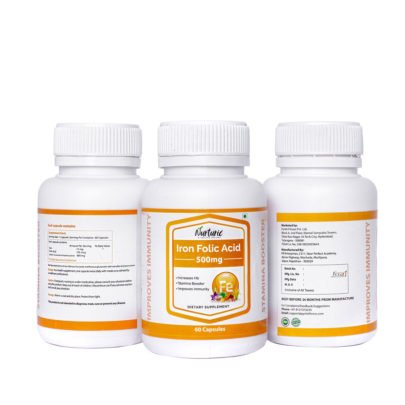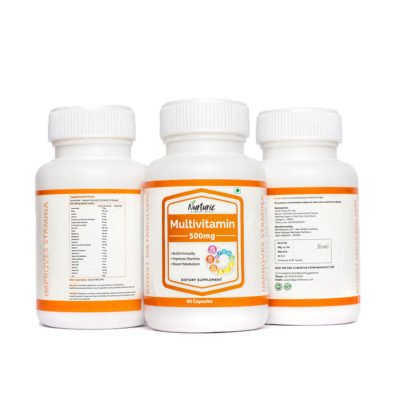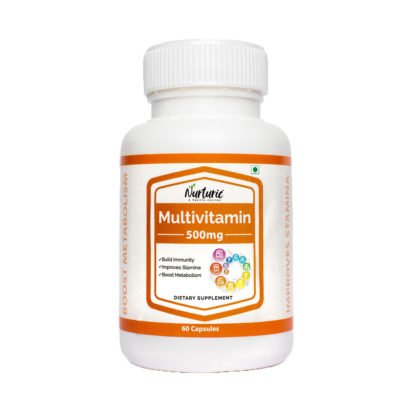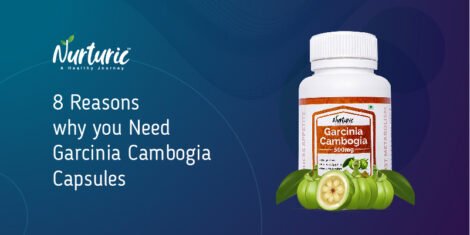- You have no items in your shopping cart
- Subtotal: ₹0.00
The super seed world is overflowing with healthy competition, from chia to hemp. Among those Flax seeds are tiny seeds that have a plethora of health benefits. It was one of the earliest cultivated superfoods, dating back to 3000 BC. In Egypt, Switzerland, Syria, and China, flax has been developed and grown consistently.  Flax seeds, also known as linseeds, are the seeds of the flax plant and are high in protein, micronutrients, and fibre. These small seeds pack a powerful nutritional punch! It provides your body with the immunity it needs to deal with the bitter cold of the winter months while also resisting cold and all the diseases that come with it. Let’s dive deeper into flax seed’s health benefits.
Flax seeds, also known as linseeds, are the seeds of the flax plant and are high in protein, micronutrients, and fibre. These small seeds pack a powerful nutritional punch! It provides your body with the immunity it needs to deal with the bitter cold of the winter months while also resisting cold and all the diseases that come with it. Let’s dive deeper into flax seed’s health benefits.
10 Reasons Why You Need Flaxseed
As early as 3000 B.C., the flax plant was used in Greek cuisine and Roman medicine. Historically, flax has been used as a laxative and an expectorant, responsible for soothing irritated tissue, controlling coughs, and relieving pain. It has the highest amounts of alpha-linolenic acid (ALA). Vegans and vegetarians claim that they don’t need to eat fish for Omega 3 because flaxseed is also high in Omega 3.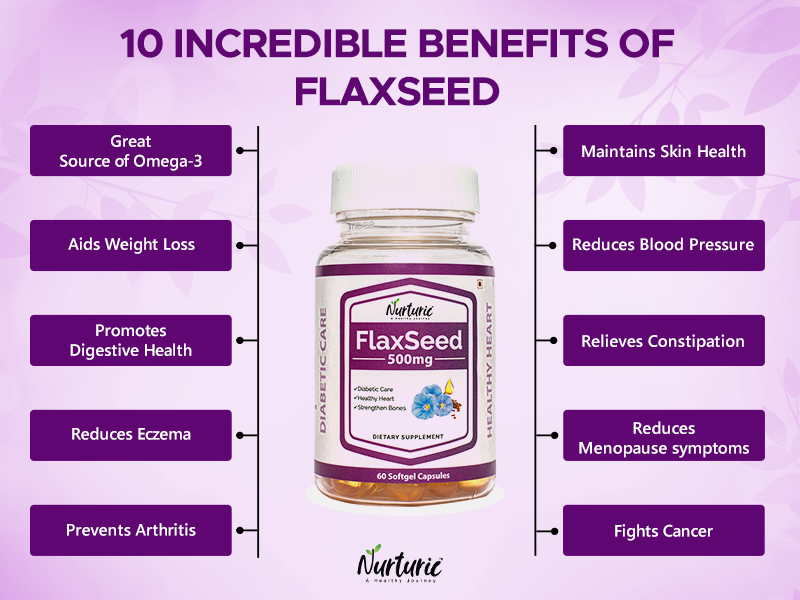 Flax seeds are superfoods high in fibre, which aids in detoxification and support the liver and kidney. It contains an abundance of water-soluble mucilage gum that helps absorb the nutrients from the food you eat. In addition, this water-soluble fibre aids in the trapping of toxic substances and excretes it from your body. Let’s dig deeper into the health benefits of flaxseed oil.
Flax seeds are superfoods high in fibre, which aids in detoxification and support the liver and kidney. It contains an abundance of water-soluble mucilage gum that helps absorb the nutrients from the food you eat. In addition, this water-soluble fibre aids in the trapping of toxic substances and excretes it from your body. Let’s dig deeper into the health benefits of flaxseed oil.
Great Source of Omega-3
Omega-3 fatty acids are essential fatty acids because the human body is incapable of producing them. They should be obtained through our diet for us to grow and develop normally. Flax seeds, which contain high levels of omega-3 fatty acids, have numerous health benefits, including anti-inflammatory properties and the ability to normalise the heartbeat. Compared to other seeds and nuts, flax seeds have a reasonably healthy omega-6 to omega-3 ratio compared to many other oilseeds, which lowers the risk of various chronic diseases like heart attack, strokes and abnormal heartbeats.
Aids Weight Loss
A fibre-rich food aids in weight loss because it nourishes your body with healthy fats and suppresses appetite. The benefits of eating flax seeds on an empty stomach make you feel less hungry, so you eat less food. It also traps bad fat, rendering it insoluble in the body, which may help you lose excess fat from your body through excretion.
Promotes Digestive Health
Flaxseeds contain soluble and insoluble fibre, which aids in the passage of food through the intestines. Its mucilaginous fibre improves nutrient absorption in the intestine. The soluble fibre dissolves in water and forms a gel-like substance, keeping the stomach full for a longer time. It boosts probiotics in the gut, which improves digestion. It also protects the lining of the digestive tract, which aids in the prevention of digestive problems and also aids in the reduction of gut inflammation. Flax is high in magnesium, which aids in digestive health.
Reduces Eczema
Flaxseed aids in clearing skin and acts as a natural moisturiser. Eczema is caused by the irritants such as soaps and detergents, wool, skin infections, dry skin, low humidity, frequent itching, burning, and rashes. Consuming 1 tbsp of flaxseed can help your skin feel soft and nourished, which can help cure this disease. It contains essential fats and vitamin B, which help to protect your skin from skin diseases such as acne, pimples, rosacea and eczema. It also aids in the removal of dryness from your eyes.
Prevents Arthritis
Once upon a time, bone and joint pain were considered signs of ageing, but nowadays, almost everyone suffers from bone and joint pain. Flaxseed aids in the prevention of osteoarthritis disease and helps in the strengthening of your bones. It contains anti-inflammatory omega-3 fatty acids, which can alleviate arthritis pain. It also aids in the formation of grease in the bone joint, which promotes bone flexibility and movement; and reduces bone stiffness.
Maintains Skin Health
Flaxseeds contain several skin-friendly nutrients that can help to improve skin health. Flaxseed oil is present in various skincare products, including shower gels, moisturisers,
and sunscreen. It lowers the production of sebum, an oily substance produced by the skin glands, preventing the onset of acne and reducing skin damage caused by sun exposure. Its antioxidants fight free radicals, preventing skin cancer. A daily massage with flaxseed oil keeps irritants out of your pores, moisturises the skin and helps to prevent wrinkles.
Reduces Blood Pressure
As soon as a person begins to experience stress; various diseases, including high blood pressure, manifests in the body. Flaxseeds’ amino and omega 3 fatty acids can significantly lower blood pressure. It contains linoleic acid, lignin and fibre, which regulates blood pressure and lowers the risk of heart attack or brain haemorrhage. In addition, It also prevents plaque formation in the arteries and normalises systolic and diastolic blood pressure.
Relieves Constipation
Flaxseeds, which are high in fibre and low in carbs, aid in proper bowel and bladder movements, resulting in appropriate bowel evacuation and the prevention of constipation. An indigestible coating on flaxseed oil seeds aids in the treatment of gastrointestinal disorders such as constipation and irritable bowel syndrome. When this coating comes into contact with liquids, it produces a thick, slippery substance that coats the intestine walls and promotes bowel movement, preventing constipation.
Reduces Menopause symptoms
The phytonutrients in flaxseeds are good for balancing hormones, and it is especially beneficial to women undergoing menopause. It contains strong estrogenic properties, which are helpful to help young women keep their menstrual cycle regular. It is helpful as an alternative to hormone replacement therapy because lignans have estrogenic properties that aid in providing estrogen and completing the body’s hormone deficiency.
Fights Cancer
Breast cancer in women has become quite common in recent years. The omega-3 fatty acids and anti-inflammatory properties can lower the risk of breast cancer. Furthermore, the lignin inhibits the growth of cancerous tumours and reduces the risk of prostate cancer. In addition, the phytonutrients present in it also prevents the growth of cancerous tumours.
Now that we know the benefits of flaxseed, let’s talk about the conditions it can treat or prevent.
Who Needs It? Which Conditions Can It Treat or Prevent?
Flaxseeds are rich in nutrients, the alpha-linolenic acid that scavenges free radicals in the body. It has potent anti-inflammatory and antioxidant properties that protect against pneumonopathy. Flax seeds are also a good protein source, but they lack lysine, so they must be combined with other protein sources high in lysine, such as beans and pumpkin seeds, to reap their full benefits. Because they are naturally gluten-free, they are an excellent dietary option for people who have gluten sensitivities or celiac disease. Let us take a look at what other conditions it can treat or prevent.
- Enlarged prostate
- Diverticulitis,
- Inflammation of the small intestine
- Irritable bowel syndrome
- Myocardial infarction
- Hot flushes
- Diabetes
- Heart disease
Although it contains a lot of goodness, it should be consumed in small amounts and plenty of water to avoid complications. Consult your doctor to ascertain whether flaxseed may interact with any of your current medications. Now that we’ve seen the uses of flax oil capsules and the conditions it can help prevent, let’s see the drawbacks and who should avoid it.
Now that we’ve seen the uses of flax oil capsules and the conditions it can help prevent, let’s see the drawbacks and who should avoid it.
Possible Side Effects
Flaxseed is relatively safe, but excessive consumption can result in several side effects. It may even interfere with your hormones during pregnancy. Because it acts as a blood thinner, you should avoid flaxseed consumption if you take any blood thinners, such as aspirin or other NSAIDs. Avoid consuming it if you have hormone-sensitive breast or uterine cancer. In addition to this, there are some flaxseed side effects to be aware of.
- Allergic reactions
- Diarrhoea
- Intestinal obstruction
- Bloating
- Stomach ache
- Constipation
- Gas
These are some of the mild and common side effects of excessive consumption. If you experience any of these side effects, contact your doctor right away! Now that we have seen the ground flaxseed benefits and drawbacks, let’s look at the nutritional facts.
Now that we have seen the ground flaxseed benefits and drawbacks, let’s look at the nutritional facts.
Nutritional Information and Ingredients – Background
Flaxseed has numerous medicinal properties and has been used as an Ayurvedic medicine in India. It is a superfood because it is a treasure trove of nutritional elements. Vitamins, minerals, omega-3 fatty acids, and antioxidants abound. It contains a lot of B vitamins, manganese, and magnesium. Furthermore, flaxseeds are low in carbohydrates, making them ideal for weight loss or a diabetic diet. Flaxseeds are the most nutrient-dense foods available. It has 110 calories, 6 g of carbohydrates, 4 g of protein, 8.5 g of fat, 6 g of fibre, 0.6 mg manganese, 0.4 mg thiamine, 22% of vitamin B1, 80 mg magnesium, 20 % of 132 mg of phosphorus, 0.2 mg copper and 5 mg of selenium.
Flaxseeds are the most nutrient-dense foods available. It has 110 calories, 6 g of carbohydrates, 4 g of protein, 8.5 g of fat, 6 g of fibre, 0.6 mg manganese, 0.4 mg thiamine, 22% of vitamin B1, 80 mg magnesium, 20 % of 132 mg of phosphorus, 0.2 mg copper and 5 mg of selenium.
As you can see, this nutrition profile makes it clear where the benefits of flaxseed come from. Let us now look at how to choose the best supplement.
How to Choose the Right Supplement and Where to Buy It From
Flaxseed is easily available in supermarkets and health food stores as powders, whole seeds, and supplements. Regular consumption of flaxseed oil capsules can help you improve your long-term health and wellness. It works exceptionally well when combined with other nutrients and vitamins. However, if you want to buy, you must first ensure that the company or manufacturer is legitimate and credible and their products are 100 % organic and safe. Nurturic flaxseed oil capsules are an excellent source of organic and high-quality flaxseed extract. Nurturic Capsules are 100% organic capsules that will assist you in incorporating the extremely beneficial supplements into your daily diet!
Nurturic flaxseed oil capsules are an excellent source of organic and high-quality flaxseed extract. Nurturic Capsules are 100% organic capsules that will assist you in incorporating the extremely beneficial supplements into your daily diet!
Our Take
You will gain weight regardless of what you eat, as long as you consume more calories than you burn. The best way to consume flax seeds for weight loss is to have them in moderation while maintaining your caloric intake. Even though flaxseed is a nutrient powerhouse, keep in mind that it is not a magic pill that you can take and immediately see results.
FAQs
1. How much flaxseed can I take a day?
It is recommended to take 2-3 capsules per day.
2. Does flaxseed unclog arteries?
Flaxseed helps unclog arteries due to its high fibre content. It also contains an omega-3 acid which reduces inflammation and controls high blood pressure.
3. What is the best time to eat flax seeds?
You may eat it at any time of the day. However, eating too much before a meal might decrease your appetite as flaxseed is very rich in fibre.
4. Is flaxseed good for hair?
Yes. Flaxseed is a good source of B and E vitamins and omega-3 fatty acids, which help your hair grow stronger and healthier.
5. Is flaxseed good for hormones?
Yes. It acts as a building block for our hormones. Consuming flaxseed is a great way to give your body the need for proper hormone production.
6. Can flax seeds reduce belly fat?
Yes. Flaxseed is an excellent source of both soluble and insoluble dietary fibre which cleanse the intestinal tract and removes extra internal belly bulges.
7. Is flaxseed safe during pregnancy?
Yes. It is safe to consume in moderation because it has no side effects. However, it is strongly advised to consult your doctor before incorporating it into your diet.
8. Is flaxseed good for the face?
Yes. It serves as an anti-ageing gel by removing dead cells, and it also has water retention properties that keep you hydrated and help your skin retain moisture.
9. Does flaxseed oil boost immunity?
Yes. Flaxseed oil is a rich source of lignans and ALA (alpha-linolenic acid). They have been found to promote immune cells and compounds that control immune reactions.
10. When is the best time to take flaxseed?
To reap all of the benefits, it is recommended to take it 2-3 times per day with meals.




